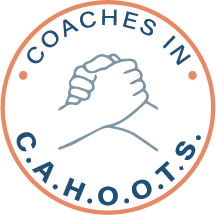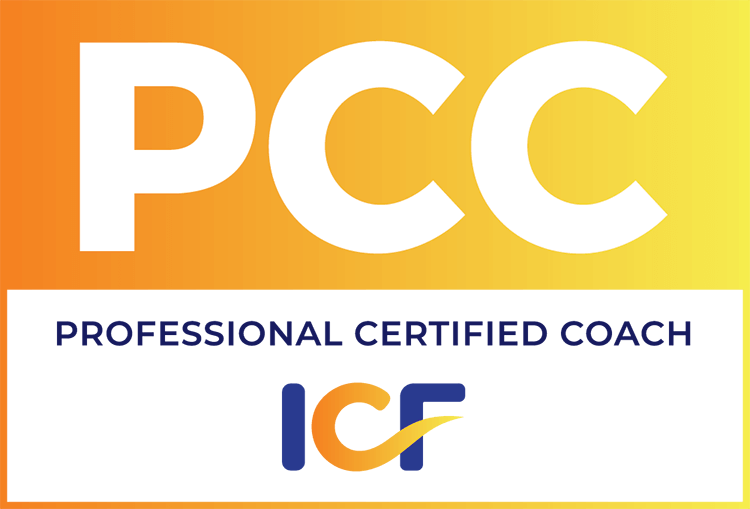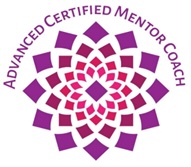 I’ve been a coach since 2010, and over the past few years, I’ve had increasing opportunities to teach and mentor other coaches. Today, I can say I truly love whatI do as a coach, mentor, and instructor, but it definitely wasn’t always like this.
I’ve been a coach since 2010, and over the past few years, I’ve had increasing opportunities to teach and mentor other coaches. Today, I can say I truly love whatI do as a coach, mentor, and instructor, but it definitely wasn’t always like this.
For way too long, I allowed perfectionism and imposter syndrome to chew me up and spit me out. I could never recognize the value I had to offer, and there was always a gnawing fear inside warning me that my clients, mentees, and students would surely see through me and realize what a fraud I was at any moment. That little voice saying, “Who do you think you are anyway?” Was always echoing in the back of my mind. Do you hear it too?
As we learn how to become coaches, we learn lots of new skills. More importantly, we also learn more about ourselves and our own thinking, and I’m immensely grateful for the many coaches and mentors who have supported me along the way. If you’re finding your own coaching journey to be long, winding, and full of self-doubt, I’d like to share a few lessons I’ve learned so far that I hope will be encouraging to you.
1. You don’t have to be brilliant as a coach.

I remember feeling so much pressure as a new coach. Of course, I had been taught well, and I intellectually knew that it wasn’t up to me to solve the client’s problem or come up with a solution, but there was still something inside me that wanted so badly to do a good job, to bring value to my clients, and (to be perfectly honest) to have my clients think, “Wow! She’s such a good coach.”
This kind of thinking was so hard for me to overcome. It was supported by everything in my life. I had been praised for being a good student as a kid, I was a homeschooling mom who took the education of my children very seriously. I was a leader in various community organizations and was the one people came to over and over again for a listening ear and sound advice. So, I naturally brought this same sense of dogged dedication to my coaching. It didn’t help.
I can’t say exactly when I was able to let go of this thinking. It has been a gradual process. Even now, I can sometimes catch myself starting to wonder about what a good answer or solution might be for a client. Thankfully, I can now catch myself doing this quickly and remember to focus on the client, their thinking, and their own unique relationship with the problem instead of focusing on the problem itself. This gives me the ability to be more objective and have a broader view of things which allows me to help my client see things differently and discover solutions that they may have never even thought of before.
2. It’s OK to be not OK.
To quote a line from Imagine Dragons, I’ve learned that it’s OK to make mistakes as a coach. Yes, it still bothers me to make mistakes, but I can forgive myself and get over it much more quickly than I used to.
As coaches, we know how important it is to respect our client’s humanity, but what about our own humanity? After all, coaches are human too. Learning to acknowledge and accept our own flaws can give us more empathy for our fellow flawed humans.
While it is OK to be not OK as a coach, it is also important that we be consistently working on ourselves, learning, and growing both personally and professionally. My long-time mentor, Marion Franklin, MCC, says that we must always be cleaning up our side of the street. We will never be perfect, but we can consistently seek to improve ourselves in some way. As for me, I’ve still got plenty of messy street corners to clean.
3. Coaching really can be joyful.
It took quite a while for me to be able to show up on a coaching call without feeling nervous and sometimes even sick at my stomach. Outside of my coaching, I liked to know what to expect, to have plans A, B, and C ready to go, and to have nice neat checklists to handle all the things that needed to be done. In other words, I was a control freak. Coaching calls made me feel completely unsettled and out of my element. To be really honest, they were downright scary.
Over the years, I have learned how to relax and really trust the coaching process and myself as a coach. Now, I show up on coaching calls genuinely curious to see what my client and I will discover together rather than feeling sick and self-absorbed. It’s a much more joyful and resourceful state to be in. Even more exciting is how much these coaching qualities like curiosity, acceptance, and resilience have spilled over into other areas of my life. I still harbor some controlling tendencies which can show up when I am tired or stressed, but I’m much more confident and open to not knowing, being spontaneous and having more fun overall.
Maybe you’re a coach who’s never had challenges like this. Maybe you’re reading this and shaking your head, wondering what must be wrong with me. That’s OK. This article wasn’t meant for you. I’m sharing these things here in hopes of encouraging newer or less experienced coaches who may be feeling discouraged and disheartened because no matter how hard they are trying to be good coaches, things just don’t seem to be clicking for them. I’m writing this to say, “Keep going. Keep learning and growing. You will find your way.”
What about you?
If you’re a coach who finds yourself nodding along as you read this article, I’d love to have you join in the conversation. What are some of the challenges you’ve faced? What are the lessons you’ve learned along the way?



